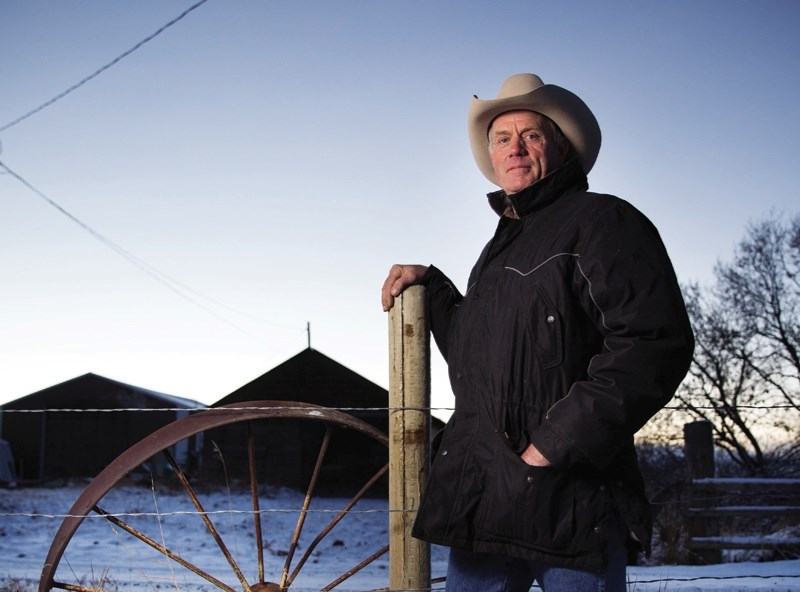People working on Alberta’s farms and ranches will be covered under provincial labour legislation in the new year.
The move will affect 60,000 farm and ranch workers who will be subject to Occupational Health and Safety (OHS) legislation and Workers Compensation Board (WCB) coverage as of Jan. 1.
Additional changes to employment standards and labour relations legislation will come into effect in the spring of 2016, while detailed OHS rules for farms and ranches come into effect in 2017.
Lori Sigurdson, minister of jobs, skills, training and labour, said workers in other industries are covered under labour legislation and it’s time for the same rules to apply to farm workers.
Alberta is the only province where farm workers do not have any form of labour coverage.
“This is really about safety and it’s been far too long that workers in this industry have not had protections and fairness and it’s time for us to move on it,” she said.
The move affects anyone involved in commercial operations of a farm or ranch and OHS rules will cover anyone who works on a farm, including unpaid family members, children or neighbours who volunteer to help. The rules only cover commercial operations, not personal or recreational activities around the house and they don’t cover operations involving processing food products.
The provincial government will work with industry over the next year to develop detailed regulations. Specific issues, such as hours, safety standards, children working on farms, overtime and holiday pay will be determined during the discussions.
Sigurdson said the government will work with farmers and ranchers to design specific OHS and labour rules that will recognize the unique nuances of the agricultural sector.
“We want to work with them, farmers and the industry in general to make sure we’re getting it right,” he said.
The Province will host a town hall meeting in Okotoks on Dec. 2 at 4 p.m. at the Okotoks Best Western. Input can also be provided online at work.alberta.ca/farmandranch
Once new occupational rules are in place, OHS officers will have the authority to inspect farms to ensure compliance with regulations and to deal with injuries involving paid and unpaid workers.
They will also have the ability to issue stop-work orders when necessary.
However, Sigurdson said the Province will work with producers to ensure such orders don’t effect animal or crop health.
She said OHS investigators are highly trained and the government wants to work with industry and family farms to ensure workers’ safety is protected, while allowing the job to get done.
“This is the first time we’ve been able to go on family farms and in the industry, so we are certainly working with the investigators to make sure we’re using an educational approach,” she said.
Foothills rancher Ralph Nelson said the government is moving too quickly and should take more time to consult farmers and ranchers.
He said the Province should specifically target problem areas in the agricultural sector, rather than blanket the industry with rules that will be difficult to police or administer.
“I’m just afraid that it’s an urban workforce application being applied to the farm,” he said. “Maybe some folks just don’t understand how diverse agriculture is and how many different types of operations there are and how specialized some are.”
Nelson said safety is top of mind for everyone working on farms and ranches, but he said there is a wide range of potential hazards that can be unpredictable and difficult to mitigate.
“There can be some significant risks in what we do out on the farm, but I’m not so sure how you eliminate that risk,” he said. “You can do your best to manage it; it’s risky. I ride my horse and he can fall in a hole and chuck me off.”
Nelson said large agricultural operations already have formalized procedures and protocols in place and may have an easier time adjusting to the new rules.
However, he said it will be more difficult for smaller operations and family farms to figure out how it will affect them and what changes will be needed.
Nelson said OHS inspectors should have an agricultural background and understanding of the industry.
Highwood MLA Wayne Anderson said the government is moving too quickly and needs to meet with farmers before bringing in any changes.
“We believe educate before you legislate, when have they actually gone out to the stakeholders and had a conversation for them,” he said.
He is concerned about the potential impact it could have on smaller operations and said family farms should be exempt from the changes.
He said safety is a priority and he hopes logic and common sense will prevail to minimize the potential impact.
“To have the OHS have the ability to walk in and shut down your family farm business just because there’s a potential for an accident of some sort of potential of a safety violation, people’s livelihoods would be put in jeopardy if OHS has the ability to walk in and shut down the family farm,” he said.




